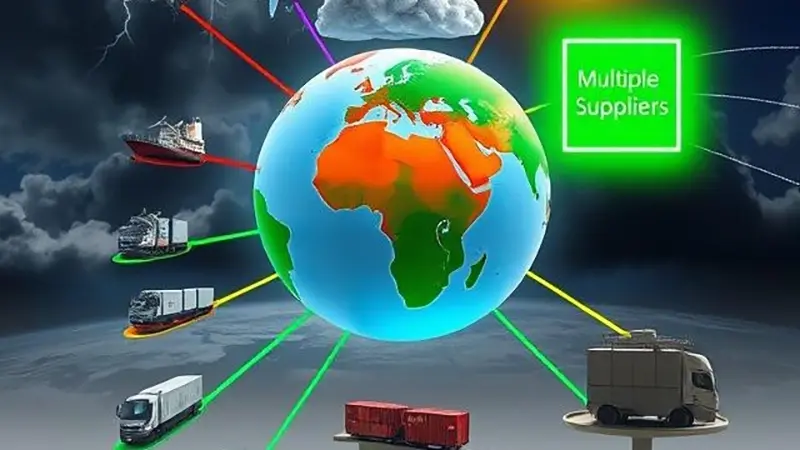In today's world, businesses really need supply chains that can handle anything. That's why diversifying where you get your stuff from is so important. If a company relies too much on just one supplier or one part of the world, they're taking a big risk. Problems like political issues, natural disasters, pandemics, new rules, or even just problems with that one supplier can cause serious disruptions. This can mean a halt in production, higher costs, and damage to a company's reputation.
But, by getting supplies from different suppliers and different places, companies can protect themselves a lot better. This gives them options when things go wrong. If one source dries up, they can quickly switch to another and keep things running smoothly. We saw this during COVID-19: companies that had a wider network of suppliers were way more able to keep going than those that depended on just one. Plus, having a bunch of suppliers competing for your business is a good thing! It can help keep prices down and improve the quality of what you're getting. When suppliers know they have to work for it, they tend to offer better deals, better service, and more innovative solutions. This helps companies save money and get better products, which puts them in a stronger position in the market. Sourcing from different countries also helps spread out the risks. If a company gets supplies from various regions, they're less likely to be hit hard by problems in any single place, like infrastructure issues, changing regulations, or labor disputes. Of course, it's crucial to do your homework when diversifying. Companies need to really understand the risks in each area and make sure everyone is following the rules, meeting labor standards, and working sustainably. Beyond just reducing risks, diversifying your sources can also help with things like sustainability and being a good corporate citizen. It can support economic growth in several countries, and it makes it easier for companies to meet their goals for things like environmental protection, social responsibility, and good governance (ESG). It also lets businesses offer a wider variety of products, which can attract more customers and help them keep up with new trends. So, to sum it up, it's super important for businesses to avoid relying on single suppliers or regions. Diversifying your sourcing is key to reducing risks, making your operations more flexible, keeping costs in check, and staying innovative. It's what helps businesses stay competitive and thrive in today's complex global market. #sourcing#diversification#supplychainmanagement #procurement#globaltrade#riskmanagement #strategicprocurement#vendorsourcing#supplychainresilience#ethicalsourcing #sustainable sourcing#global sourcing#businesscontinuity #resilient supply chain


